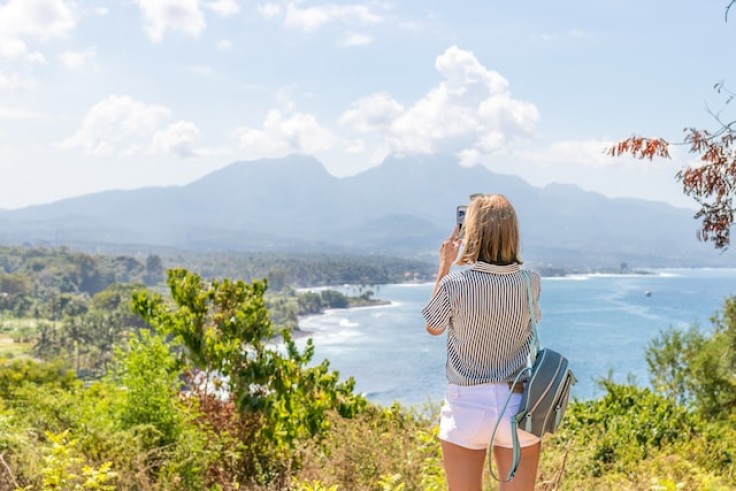
As we enjoy the resurgence of travel this summer, the issue of bad behavior by tourists is becoming increasingly glaring. Popular destinations are experiencing a surge in unfortunate incidents, from graffiti on ancient monuments to disrespectful conduct in sacred spaces.
A recent report of a tourist defacing the Colosseum in Rome is a prime example. So, what is behind this trend of bad tourist behavior? My research points to social media platforms like Instagram and TikTok as significant contributors.
The Democratization of Travel: A Double-Edged Sword
Instagram and TikTok have been revolutionary in democratizing travel. These platforms have enabled people to discover "hidden gems," from off-the-beaten-path cafes to secluded beaches and even unexplored towns. While this has been a boon for local economies, the easy access to travel information has also led to unintended consequences.
The phenomenon known as social proof explains why this happens. When people see their friends or influencers participating in specific actions or behaviors, consciously or subconsciously, they believe it's acceptable for them to do the same. While social proof can have a positive influence, in the context of tourism, it often leads to a domino effect of bad behavior.
Other attitudes have also exacerbated the problem. The 'identifiable victim effect' is an example; this is a tendency to be more sympathetic to victims of tragedies when you know who those victims are. When tourists are detached from local communities, often staying in secluded hotels or resorts, they may wrongly assume that their actions have no direct victims and therefore have no consequences.
This is where the "Instagram Loop" comes into play. Tourists see photos from exotic locations posted by their friends or influencers, get inspired to visit those places, and once there, upload similar photos to the same social platforms.
While this may sound innocuous, this cycle has far-reaching effects. The drive to achieve social validation through 'likes' and 'follows' can overshadow the genuine experiences of travel, such as exploration, learning, and respect for local customs and culture.
How Popular Destinations Are Fighting Back
Destinations like Bali have proactive launched comprehensive visitor guidelines in response to the threat that irresponsible tourism poses. These guidelines include respect for local customs, particularly in sacred spaces, restrictions on motorcycle rentals, and even rules about staying only in registered accommodations. A dedicated "tourist task force" has been established to ensure that these guidelines are followed.
Countries like Iceland, Hawaii, Palau, New Zealand, and Costa Rica have also implemented tourist pledges, ensuring visitors agree to follow local norms. Some campaigns, like Switzerland's 'No Drama,' aim specifically at attracting respectful tourists. Despite these efforts, some destinations, like Thailand's Maya Bay, had no option but to shut down temporarily due to excessive tourist activity.
Recommendations for Respectful Travel
- Research, Research, Research: Always equip yourself with knowledge about the local customs, norms, and laws. It's better to be overprepared than ignorant.
- Be Mindful of Technology: Your travel experience will be much richer if you focus on the world around you rather than your phone screen.
- Leverage Social Media for Good: If you have a considerable social media following, use it to promote responsible tourism. Highlight lesser-known destinations, advocate for eco-friendly practices, and showcase local businesses.
- Self-Awareness and Accountability: Always remember that your actions have consequences, not just for you but for the local communities and the environment.
By taking a more mindful and respectful approach to travel, we can reverse the trend of bad behavior exacerbated by social media and preserve the joy and sanctity of exploring new places for future generations.
Related Article: Social Media Etiquette for Kids -- The Unwritten Rules